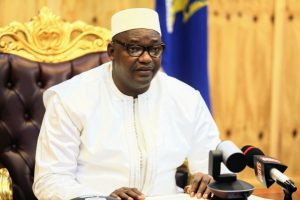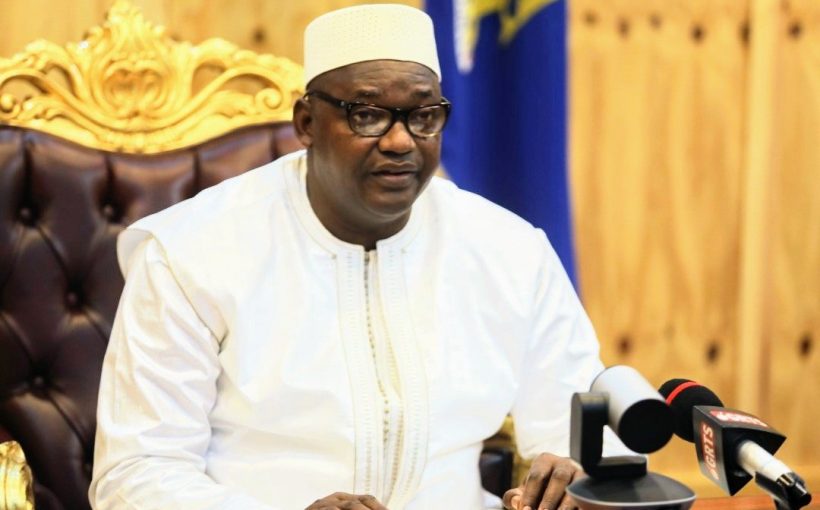
Alagi Yorro Jallow.
Part I
Fatoumatta: President Adama Barrow and his government must be ready to push transparency and accountability boundaries, even with ourselves. We must be prepared to embody and model the values that give meaning to and legitimize the essential work of shining light on dark places, holding others to account.
It is an indisputable fact that every public officer should publicly declare their assets. Furthermore, the Ombudsman office should be empowered to verify the claims made on declaration forms to ensure that public officers do not over-declare their assets, accounts, liabilities, and holdings in anticipation of using public office to enrich themselves corruptly.
An ever-growing number of countries have adopted ethics and anti-corruption laws that public officers declare their assets and income and, increasingly, the assets and income of their spouses and dependent children. The Gambian Constitution Section 223(1) of the Constitution mandates a public officer to, including the President, to “submit to the Ombudsman a written declaration of all property and assets owned by him or her, and of liabilities owed by him or her, whether directly or indirectly.”
The benefits of asset and liabilities declaration are records keeping on what a person owns before assuming public office or while in public office. It engenders transparency, accountability and discourages corruption and illegal amassing of wealth while in public office—subsection (1)para. (b) and (c) mandates a public officer to declare their assets and liabilities owed every two years and when they cease to hold public office.
Therefore, President Barrow and his public officials shall declare their assets after being in public office for almost five years (January 19, 2017 – January 19, 2021). If they have not done so, then they must violate the constitutional directive? The primary goal of asset declaration is to combat corruption. In a growing number of cases, information published in asset declarations has led to the exposure of substantial unjust enrichment. Asset and liability declaration will answer many allegations and doubts and allay fears over corruption and misappropriation. It will reveal the latest properties and assets acquired by public officials after two years in office and show asset declarants’ upsurge or downward savings. In addition, the liabilities incurred personally by a public office holder will also be revealed.
Asset and Liability Declarations of Cabinet Ministers and senior government officials, and other public officials are not meant to be a perfunctory exercise in box-ticking. On the contrary, they are primarily instruments of transparency and accountability, potentially powerful mechanisms of sunshine that could help inefficient ways, limit the incidence of corruption, one of the significant challenges of our country. Unfortunately, however, the potency of this tool is gravely diminished, in my view, by the fact that asset declarations in the Gambia were announced in June 2017, an executive order from President Barrow appears to be made in a secret affair, with the officials at the Ombudsman office. However, on behalf of those elected or appointed to hold public office, not given a viable role to the public in verifying the assets and liabilities declared and denied the fundamental right to know the information in the declaration forms? This is another case of the “missing public” that needs fixing.
Fatoumatta: Therefore, as we rightly seek new beginnings for our country, we need to reinsert and reassert the public into this process of transparency and accountability by lifting the veil of secrecy from the declared assets of our public officers. This I believe: all public officers should be required to display their assets publicly. Otherwise, the impact of the asset declaration exercise is successfully neutered.
President Barrow’s Executive Order of June 23, 2017, authorizing his Cabinet Ministers to declare their assets, is not a rubber stamp to hoodwink people because no one has access to the records. Moreover, there is no mechanism for its enforcement.
Universally accepted standards of Asset Declaration stipulate that the President and members of his Cabinet Ministers disclose all assets, liabilities, and business interests—as well as those of their spouses or any assets that are held on their behalf—upon election or appointment. Such a declaration is supposed to be made in writing to the Speaker of the National Assembly within three months of their election or appointment.
However, despite President Barrow’s very unclear Executive Order and the importance that government officials be publicly accountable to the citizenry, it has not proven easy to implement practically binding principles observed by those in high office. Indeed, it has become a thorny issue among politicians in The Gambia. For example, nobody wants to detail their (often unexplained) property or wealth.
Fatoumatta: To make matters worse, even when a senior public figure makes a declaration, it is challenging for the media or other interested parties in civil society to access the documents. If you read carefully, what the media publishes is just the fact that there has been a “declaration of assets,” not the actual contents of the declaration. Does the media have access to enough documents to scrutinize all the declared assets?
Fatoumatta: What mechanism for verification is put in place to ensure an accurate inventory of assets declared? One viable mechanism is physical verification, which involves comparing the data on the forms with data held at various public agencies and private entities to check for authenticity, veracity, and accuracy. The exercise will involve visiting physical sites for inspection and assessment of declared movable and immovable properties. Wherever necessary, professional experts will be used in the process at the expense of the Directorate. Institutions declaring their assets include the Ministry of Local Government and Lands, Financial Institutions local and abroad, and the Gambia Revenue Authority.
The declared assets of public officers should undergo the verification exercise to prove if their forms were truthfully completed. Their initial declaration would be followed by an annual declaration update to be filed within thirty days after the start of each fiscal year. Unsurprisingly, the lack of verification leads to widespread doubts about whether leaders declare their assets. However, this also proves the entire point of declaring assets: to be more transparent and accountable and to help tackle corruption.
In the current situation, President Barrow, cabinet ministers, and senior government officials know that if they have handed in a “declaration of assets,” no one can question their wealth. On top of this, there is no prescribed penalty for failure to declare assets! Talk about a toothless regulation. Such a lack of transparency can lead to a sense of impunity and allegations of corruption. Publicly declaring assets tackles these problems, giving citizens more faith in their elected and appointed representatives. However, senior government figures in The Gambia are not worried about that. Alternatively, instead: they are more concerned about publicly declaring what they own. I wonder why? If it is legally accrued wealth, then why not declare it?
Fatoumatta: In other countries, the media might use different routes to get around the Speaker’s non-disclosure by using an access-to-information law. Regrettably, we in The Gambia have the colonial Official Secret Law instead of legislation requiring access to information, such as a Freedom of Information law, leaving Gambian citizens in the dark on many critical issues.

